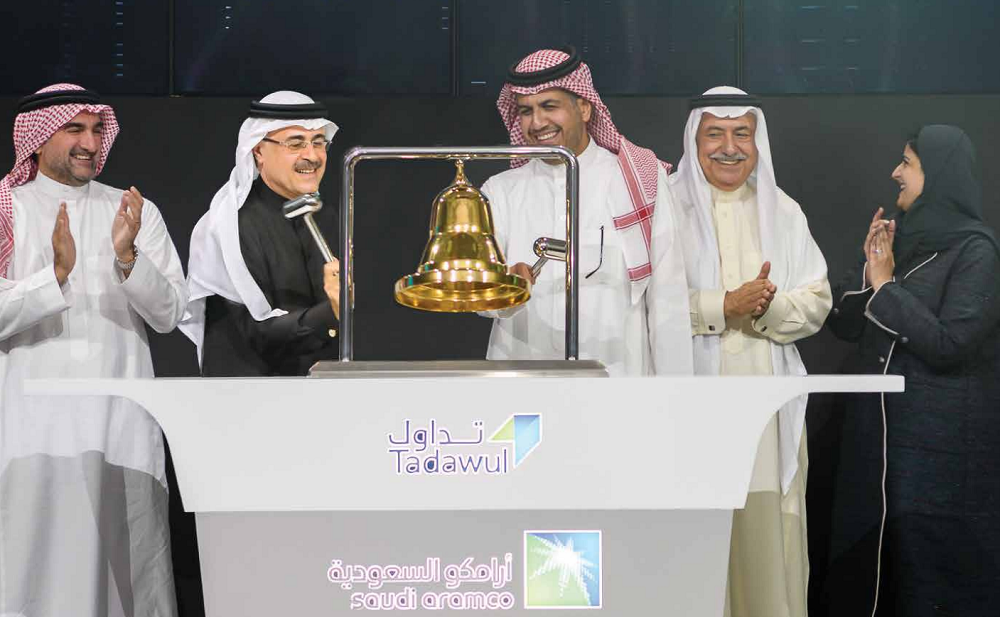
Saudi Aramco has brought in a further $3.8bn from its already record-breaking IPO, following the issue of 450 million additional shares.
The share sale over the weekend builds on the state-owned oil giant’s long-awaited public float launched in December, and brings the total capital raise from the venture to $29.4bn.
Saudi Aramco was confirmed as the world’s most valuable listed business when it debuted on the Tadawul stock exchange last month — offloading 1.5% of the company to outside investors in return for $25.6bn.
The IPO has been central to the Kingdom’s efforts to overhaul and modernise its oil-reliant economy as part of Crown Prince Mohammed bin Salman’s Saudi Vision 2030 plan.
But heightened tensions in the Middle East region have raised concerns over the stability of key oil and gas markets, with Saudi officials keen to downplay fears over potential disruption.
Saudi Aramco has sold 450 million shares to existing IPO investors
The issuance of 450 million new shares — sold at the same 32 riyals ($8.53) individual offering price — has been made only to existing shareholders who took part in the initial book building process, in the exercise of an “over-allotment” option.
Often termed a “greenshoe” option, the over-allocation of shares following an IPO is a mechanism commonly used by underwriters to stabilise initial pricing.
While shares in Saudi Aramco have generally performed well on the Tadawul since the December listing — briefly touching the $2tn valuation so desired by the Saudi Crown Prince — the recent escalation of tensions in the Middle East has injected fresh uncertainty into the market.
Analysts have so far downplayed immediate fears about disruption to global oil supplies, but concerns persist over the ongoing stability of the key oil-producing region, particularly given the close ties between Saudi Arabia — the world’s biggest crude exporter — and the US.
In September last year, two key Saudi Aramco facilities were targeted by drone attacks for which US investigators blamed Iranian influence – causing significant disruption to oil production and wide fluctuations in oil prices.
The concern for investors in the region is that similar attacks could be made on Saudi oil and gas infrastructure in retaliation for the US assassination of Iranian general Qassem Soleimani.
Saudi energy minister Prince Abdulaziz bin Salman today moved to reassure investors over stability in the country, and downplay fears the Kingdom could find itself caught between two nations looking to flex their muscles.
According to the Reuters news agency, he said: “As tension remains high in our region, Saudi Arabia will continue to do all it can do to ensure stable oil markets.”






